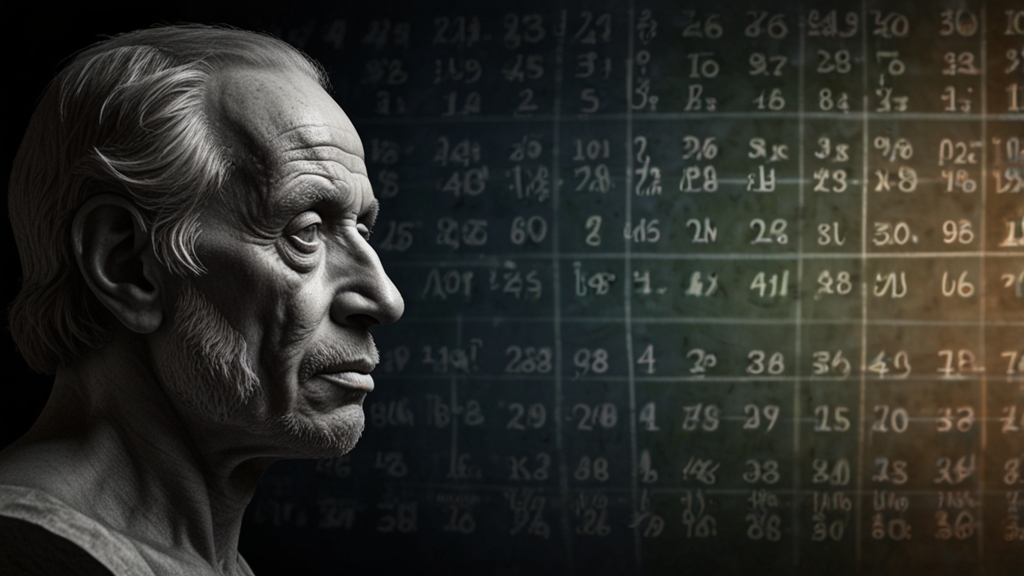The Evolution of Math: How Numbers Have Shaped Human Thought
Mathematics is often seen as a pure science, an abstract creation of the human mind. However, its evolution is deeply intertwined with the progress of civilization itself. From ancient counting systems to modern computational algorithms, numbers have profoundly influenced the way we think, solve problems, and understand the universe. This article explores the fascinating journey of mathematics and how it has continuously shaped human thought.
Ancient Beginnings: The Dawn of Numbers
The story of mathematics begins in prehistory. Early humans used tally marks and simple counting methods to keep track of resources such as livestock and crops. These rudimentary forms of arithmetic were crucial for survival, enabling early societies to plan and organize their communal life. Archaeological evidence suggests that the earliest known counting tools, such as the Ishango bone, date back to around 20,000 years ago.
"The history of mathematics is a vast and intricate tapestry, woven from countless threads of human curiosity and ingenuity."
As civilizations grew more complex, so did their mathematical systems. The Sumerians and Egyptians developed some of the earliest known numeral systems around 3000 BCE. These civilizations introduced basic arithmetic operations and the concept of zero. Zero would go on to become a cornerstone of mathematics, simplifying calculations and enabling the development of more sophisticated mathematical theories.
The Greeks and the Birth of Abstract Mathematics
The ancient Greeks took mathematics to new heights by introducing rigorous logical reasoning and geometric analysis. Pioneers like Pythagoras, Euclid, and Archimedes laid the groundwork for many mathematical principles that are still in use today. Euclid's "Elements," a collection of books covering geometry, number theory, and mathematical logic, became one of the most influential works in the history of mathematics.
The Greeks were the first to treat mathematics as an abstract discipline, disconnected from practical applications. This shift in perspective had a profound impact on human thought, promoting a more rational and systematic approach to understanding the world.
The Islamic Golden Age: A Beacon of Mathematical Advancement
During the Islamic Golden Age (8th to 14th century), scholars made significant contributions to algebra, trigonometry, and arithmetic. Mathematicians like Al-Khwarizmi, Omar Khayyam, and Alhazen translated Greek works and built on them, producing original research that would shape future mathematical development.
"The debt of the modern world to the Islamic mathematicians is immense; their work illuminated the path from the ancient to the modern scientific world."
Al-Khwarizmi's works, for example, introduced the concept of algorithms and gave birth to the field of algebra. His texts were later translated into Latin and became standard references for European scholars.
The Renaissance and the Spread of Mathematical Ideas
The Renaissance era marked a revival of interest in classical knowledge, including mathematics. The invention of the printing press in the 15th century facilitated the widespread dissemination of mathematical texts, making knowledge accessible to a broader audience. This period saw the emergence of figures like Leonardo da Vinci, who applied mathematical principles to art and engineering, and Galileo Galilei, who used math to describe the laws of motion and astronomy.
The development of calculus by Sir Isaac Newton and Gottfried Wilhelm Leibniz in the 17th century was a monumental achievement. Calculus provided the tools to model and analyze dynamic systems, revolutionizing fields such as physics, engineering, and economics.
The Modern Era: Mathematics in the Digital Age
In the 20th and 21st centuries, mathematics has become even more integral to human progress. The advent of computers and digital technology has expanded the scope of mathematical applications dramatically. Complex algorithms power everything from financial systems to artificial intelligence, shaping the modern world in ways that were unimaginable just a few decades ago.
One of the most groundbreaking developments has been the field of computational mathematics. Techniques like machine learning, cryptography, and numerical simulations are pushing the boundaries of what we can achieve, offering solutions to problems that were once thought insurmountable.
"In the age of information, mathematics is not just a language but a vital tool for innovation and discovery."
From its rudimentary beginnings to its pervasive presence in modern society, mathematics has continuously evolved, mirroring the growth of human thought and civilization. Numbers, once simple symbols scratched on bones, have become the language through which we decode the mysteries of the cosmos. As we look to the future, there is no doubt that mathematics will continue to be a cornerstone of human progress, guiding us toward new horizons of knowledge and understanding.






